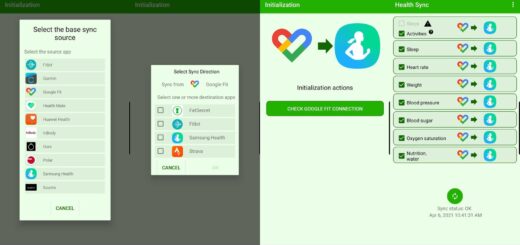Effective E-commerce marketing techniques
Looking to boost your online business? Look no further! In this article, we will explore a range of effective e-commerce marketing techniques that can elevate your brand’s digital presence and drive more sales. From search engine optimization (SEO) strategies to social media marketing tactics, content marketing ideas, email campaigns, digital analytics insights, and the power of influencer collaborations, we’ve got you covered. Whether you’re new to e-commerce or looking to take your existing business to the next level, these techniques will help you attract and engage your target audience, increase brand visibility, and ultimately boost your online sales. So, let’s dive in and discover the world of effective e-commerce marketing together!
Search Engine Optimization (SEO)
Search Engine Optimization (SEO) is the practice of optimizing a website to improve its visibility and rankings on search engine result pages. There are various techniques used in SEO to attract organic traffic to a website.
On-page SEO
On-page SEO involves optimizing the content and structure of a website to make it more search engine friendly. This includes using relevant keywords in titles, headings, meta tags, and URL structures. It also involves improving the website’s overall user experience and ensuring fast loading times.
Off-page SEO
Off-page SEO refers to activities carried out outside of a website to improve its search engine rankings. This includes building high-quality backlinks, social media promotion, guest blogging, and influencer collaborations. Off-page SEO is crucial in establishing the authority and credibility of a website.
SEO tools
There are various SEO tools available in the market that can help you analyze and improve your website’s SEO performance. These tools provide insights into keyword research, competitor analysis, backlink monitoring, and website auditing. Some popular SEO tools include Google Search Console, Moz, SEMrush, and Ahrefs.
Local SEO
Local SEO focuses on optimizing a website to increase visibility in local search results. This is particularly important for businesses with physical locations or those targeting specific geographical areas. Local SEO involves claiming and optimizing business listings on online directories, managing customer reviews, and ensuring consistent NAP (Name, Address, Phone number) information across different platforms.
Search Engine Marketing (SEM)
Search Engine Marketing (SEM) encompasses paid advertising efforts on search engines to increase visibility and drive traffic to a website. SEM offers a quick and effective way to reach a targeted audience and generate leads.
Google Ads
Google Ads, formerly known as Google AdWords, is Google’s advertising platform that allows businesses to display their ads on search engine result pages. With Google Ads, you can set a budget, choose specific keywords, and create compelling ad copies to target potential customers.
Bing Ads
Bing Ads is a platform similar to Google Ads, but it focuses on advertising on the Microsoft-owned search engine Bing. Bing Ads allows businesses to reach a different audience and can help diversify their advertising efforts.
Paid search advertising
Paid search advertising involves bidding on specific keywords to display ads on search engine result pages. This form of advertising allows businesses to reach potential customers who are actively searching for related products or services.
Ad campaign management
Ad campaign management involves the planning, execution, and optimization of online advertising campaigns. This includes setting goals, defining target audiences, creating ad copies, monitoring performance, and making necessary adjustments to improve campaign effectiveness.

Social Media Marketing
Social Media Marketing utilizes social media platforms to promote products or services and engage with potential customers. It enables businesses to reach a wide audience and build brand awareness.
Facebook marketing
Facebook marketing involves creating and managing business pages on Facebook to reach and engage with users. It includes posting relevant content, running Facebook ads, and analyzing insights to optimize strategies.
Instagram advertising
Instagram advertising allows businesses to reach a visually-focused audience on the popular social media platform. With Instagram ads, businesses can promote their products or services through photos, videos, and stories.
Twitter promotion
Twitter promotion involves using the Twitter platform to engage with customers, promote products or services, and keep followers updated on company news. It includes posting tweets, running ads, and utilizing hashtags and trends to increase visibility.
LinkedIn marketing strategy
LinkedIn marketing strategy focuses on leveraging the professional networking platform to connect with industry professionals, showcase expertise, and generate leads. It includes creating a robust company page, sharing informative content, and engaging in relevant groups and discussions.
Content Marketing
Content Marketing involves creating and distributing valuable and relevant content to attract and engage a target audience. It helps businesses build brand awareness, establish authority, and ultimately drive conversions.
Blog content strategy
A blog content strategy involves planning and creating blog posts that align with the target audience’s interests and address their pain points. It includes keyword research, content planning, and optimizing blog posts for SEO.
Content creation tools
Content creation tools assist in creating, editing, and organizing content for various marketing purposes. These tools can include content management systems, graphic design software, video editing software, and social media scheduling platforms.
Video content marketing
Video content marketing utilizes videos to deliver information, demonstrate products or services, and engage with the audience. Video content can be shared on websites, social media platforms, or video hosting sites like YouTube.
Infographic promotion
Infographic promotion involves creating visually appealing and easy-to-understand infographics to convey information or statistics. Infographics can be shared on websites, social media platforms, and included in blog posts to increase engagement and shareability.

Email Marketing
Email Marketing utilizes email campaigns to communicate with a target audience, promote products or services, and nurture customer relationships.
Email automation
Email automation involves using software platforms to automate email campaigns based on predefined triggers or actions. It allows businesses to deliver personalized and timely messages to their subscribers, saving time and improving efficiency.
Email campaign optimization
Email campaign optimization involves refining and improving email campaigns to ensure maximum deliverability, open rates, click-through rates, and conversions. It includes A/B testing subject lines, optimizing email content, and segmenting email lists for better targeting.
Email marketing tools
Email marketing tools provide features and functionalities to manage and automate email campaigns. These tools often include email list management, email templates, analytics, and integrations with other marketing platforms.
Newsletter best practices
Newsletter best practices involve creating compelling and valuable newsletters that provide relevant content to subscribers. It includes optimizing newsletter layouts, personalizing content, and focusing on clear call-to-actions.
Digital Analytics
Digital Analytics involves collecting, analyzing, and interpreting data from various online marketing channels to gain insights and improve marketing strategies.
Google Analytics tips
Google Analytics is a widely-used web analytics tool that provides valuable insights into website traffic, user behavior, and conversions. Tips for using Google Analytics include setting up goals, creating custom reports, and tracking specific metrics that align with business objectives.
Data-driven marketing
Data-driven marketing involves making marketing decisions based on data analysis and insights. It includes tracking and analyzing data from various marketing channels to identify trends, customer preferences, and areas for improvement.
Web analytics tools
Web analytics tools provide insights into website performance, user behavior, and conversion tracking. These tools can help businesses monitor website traffic, identify potential issues, and optimize user experience.
Analytics reporting
Analytics reporting involves creating and sharing reports that summarize and visualize data collected from various marketing channels. These reports provide a clear overview of marketing performance and help stakeholders make informed decisions.
E-commerce Marketing
E-commerce Marketing focuses on promoting online stores, attracting visitors, and converting them into customers. It involves various strategies and techniques to optimize the online shopping experience.
Online store optimization
Online store optimization involves improving the design, functionality, and user experience of an e-commerce website to increase conversions. It includes optimizing product pages, simplifying the checkout process, and implementing responsive design for mobile users.
E-commerce SEO
E-commerce SEO involves optimizing an online store to improve its visibility and rankings on search engine result pages. It includes keyword research, optimizing product descriptions, building high-quality backlinks, and optimizing URL structures.
Product listing ads
Product listing ads (PLAs) are paid advertisements that display specific products along with their prices on search engine result pages. PLAs help increase product visibility and attract targeted traffic to e-commerce websites.
Cart abandonment strategies
Cart abandonment strategies involve implementing tactics to reduce the number of customers who abandon their shopping carts before completing a purchase. This can include automated email reminders, offering discounts or incentives, and improving the checkout process.
Influencer Marketing
Influencer Marketing involves collaborating with influential individuals or personalities to promote products or services. It leverages the influence and reach of these individuals to boost brand visibility and credibility.
Influencer collaborations
Influencer collaborations involve partnering with influencers to create content that promotes a brand or its products. This can include sponsored blog posts, social media shoutouts, or product reviews.
Influencer outreach
Influencer outreach involves identifying and contacting influencers who align with a brand’s values and target audience. It includes reaching out to influencers via email, social media, or influencer management platforms.
Micro-influencers
Micro-influencers are individuals who have a smaller but highly engaged audience on social media. Collaborating with micro-influencers can be more cost-effective and result in higher engagement rates compared to working with macro-influencers.
Influencer marketing platforms
Influencer marketing platforms provide a marketplace for brands and influencers to connect and collaborate. These platforms help streamline the influencer outreach process and provide metrics and analytics to track campaign performance.
















It's great that you talked about how business insurance can provide financial protection against unexpected events and help ensure the…
I like that you mentioned how business insurance is essential for protecting your bottom line and the long-term viability of…